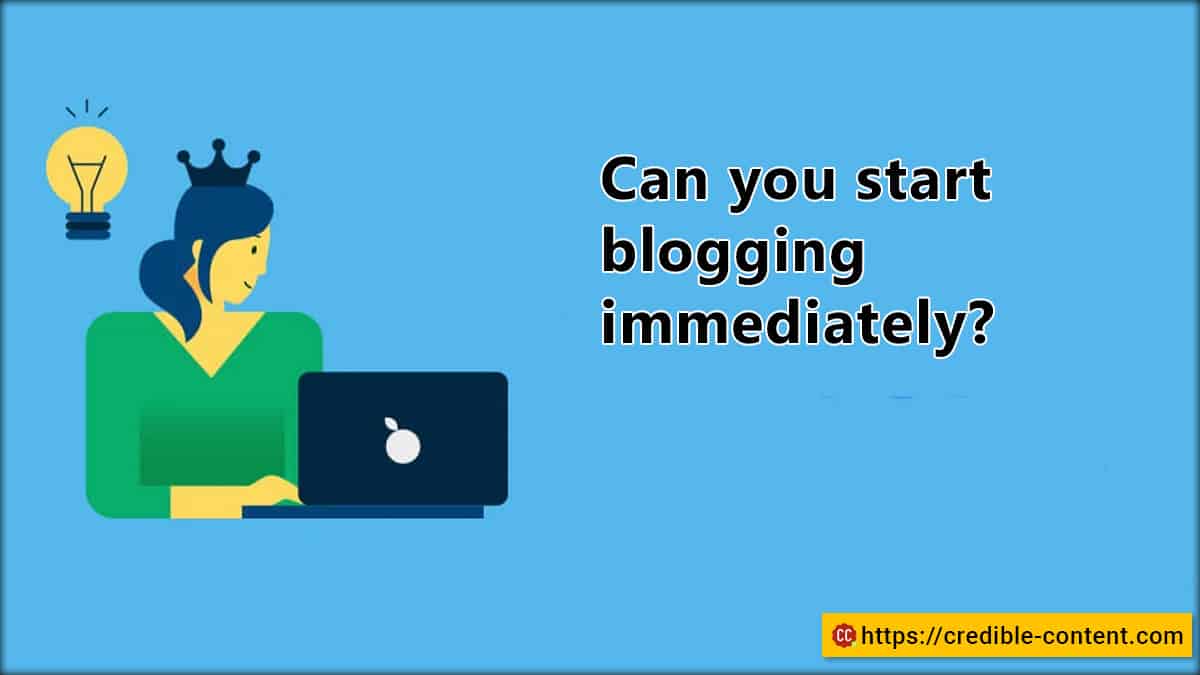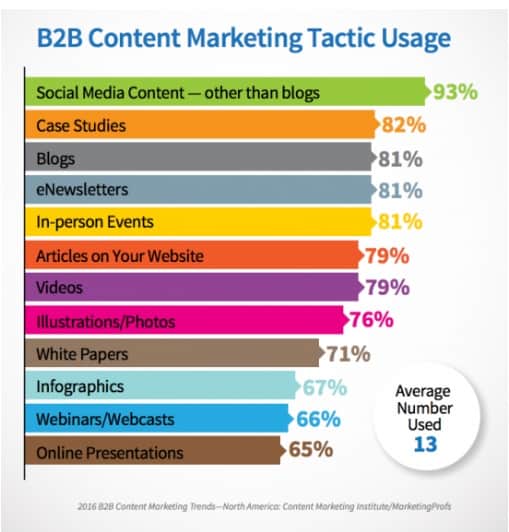Yes, and it depends.
The starting part is not difficult.
Whether you want to host your own blog under your own domain or you want to use one of the existing blogging platforms, and depending on your Internet speed of course, you can start blogging within the next 10 minutes.
You can start both business blogs or personal blog based on your preference.
You can start blogging immediately in two ways:
- Install a blogging platform such as WordPress under your own domain name.
- Use a third-party blogging platform by simply opening an account with them.
Immediately starting a blog with WordPress
Installing the WordPress blogging platform may seem like a daunting task because it involves “installing”.
WordPress is a set of PHP files that you need to first download from WordPress.org, and then using an FTP program, uploaded to your web hosting server.
But it doesn’t have to be this complicated.
Most of the web hosting companies allow you to install WordPress on your server with a single click.
Well, single click is just a way of putting it; it takes a few clicks.
But the interface is quite friendly and even if you have never installed WordPress on your server, you can install it and start blogging immediately.
Web hosting companies like GoDaddy also offer dedicated WordPress hosting services.
If you opt for a WordPress hosting package, WordPress comes pre-installed.
Once you have made the payment, you are given a WordPress username and password.
You can immediately log into the dashboard and start blogging.
You don’t even have to install anything.
You don’t need to deal with FTP servers.
You don’t need an FTP program on your computer.
You will simply need to go to the URL recommended by the web hosting company and once you are on that URL, you will be able to log into the dashboard and start blogging immediately.
Don’t you need a custom WordPress theme to run a blog?
Not necessarily.
Yes, a theme matching your main website does look good, but the focus of my blog post is telling you how to start blogging immediately and for that, I’m going to skip the part of installing a WordPress theme.
The default installation comes with standard themes that you can use to display your blog.
After logging into the dashboard, you can use one of the default themes.
After that, there is a very neat WYSIWYG editor that you can use to write and publish blog posts.
There are many tweaks that you can make to your WordPress installation, but right now that doesn’t matter.
What matters is, how fast you can start blogging.
Even if you want to start a business blog and you don’t want to waste time getting a custom theme designed, the default theme is sufficient enough.
The important part is creating content.
It may take two or three months to get a nice theme but in the meantime, you should start writing and publishing blog posts as soon as possible, and this is the quickest way.
Don’t worry about the theme yet.
The content is the important thing.
Just set the ball rolling.
Immediately starting a blog with third-party blogging platforms
I’m not going to discuss multiple blogging platforms because that becomes confusing.
The difference between a self-hosted blogging platform and a third-party blogging platform is that when you use a self-hosted blogging platform like WordPress, it is under your own domain.
A self-hosted blogging platform like WordPress is good for your search engine rankings.
With a self-hosted blogging platform, when the traffic begins to build up, it comes to your own domain name rather than another website.
The only problem is that it may take you many months to build decent traffic.
This brings me to the topic of third-party blogging platforms.
One of my favorite third-party blogging platforms is Medium.com.
You can immediately open an account with Medium using your Twitter account or Google account.
In fact, it may take less than five minutes to start writing a post on Medium.
One of the biggest benefits of publishing your blog posts on Medium is that you can get exposure faster, unlike a self-hosted blog.
The Medium platform is ready-made.
People can follow you and receive notifications whenever you publish new blog posts using Medium.
You can build traffic faster on your Medium blog, but the only problem is that most of the traffic comes to your Medium blog instead of your own website.
For building faster visibility, Medium is a great platform.
If by chance your blog post is picked by their editorial team and featured on the homepage, your blog can get massive exposure in terms of hundreds of thousands of views, in a single day.
It also makes it easier to immediately start blogging.
What about other third-party blogging platforms?
LinkedIn allows you to publish articles using its platform.
Publishing LinkedIn articles or blog posts is a good way to build your leadership over the professional networking platform.
It is said that LinkedIn promotes blog posts and articles published on its own platform more than the usual smaller updates.
Aside from Medium and LinkedIn, there is also a WordPress.com, but somehow, I have never liked it.
It doesn’t look professional.
If right now you don’t want to immediately start blogging under your own domain the best options for third-party blogging platforms are LinkedIn and Medium.
You can use LinkedIn for professional blogging.
You can share your thought leadership blog posts using LinkedIn.
LinkedIn these days also allows you to run a newsletter.
This way, whenever you publish a post over LinkedIn, your newsletter subscribers immediately receive an email with the contents of your blog post.
Medium too has such a facility.
What do I recommend if you immediately want to start blogging?
If you ask me, I would highly recommend the self-hosted WordPress blogging platform.
It may seem difficult in the beginning, but it will be worth the effort.
Your search engine rankings will improve if you publish regularly.
All the traffic that your blog generates will come to your own website.
You will own the content – all the blog posts are stored in a MySQL database and anytime you can take backup of this database and store it locally on your computer.
Even for self-hosted blogging platform, you don’t face many hurdles.
As mentioned above, WordPress hosting is available with every hosting service these days.
All you need is access to the admin/dashboard, and you can immediately start blogging.
Third-party platforms definitely have their benefits, but I would recommend that you first publish your latest blog posts on your own, self-hosted blog and then share them or syndicate them on the third-party blogging platforms.



